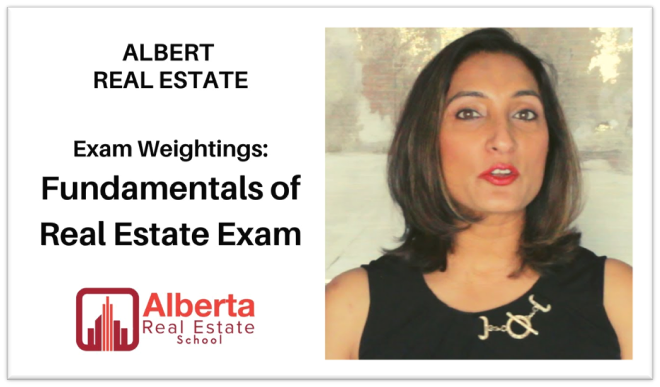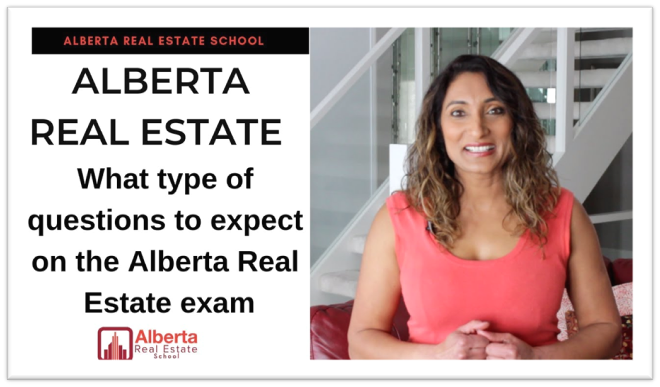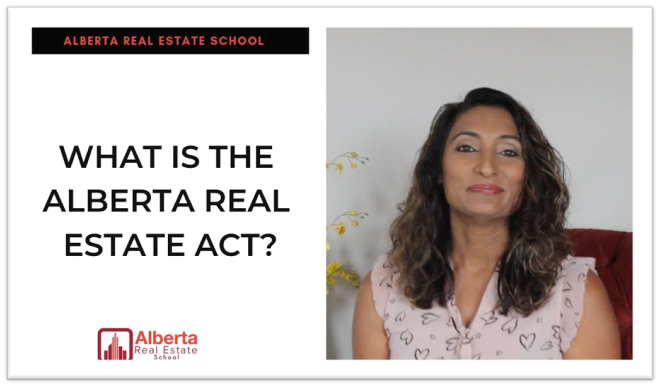Where to Take the Alberta Real Estate Exam?
In order to become a Real Estate Agent in Alberta, you have to pass the Alberta Real Estate Exam issued by RECA. RECA is the governing body for Alberta’s Real Estate Market; it stands for Real Estate Council of Alberta.
RECA is the authority behind the residential real estate, commercial real estate, property management, condominium management, and mortgage brokerage industries. RECA helps licensees ensure they’re competent, ethical, professional, and valuable to consumers. It does this through education standards and licensing, information and regulatory compliance resources, as well as ongoing compliance initiatives.
Get the key takeaways of the blog through this short video –
Normally, you would expect to take the exam at the real estate board, but that is not the case. In this article, we will look at the different options for taking the real estate exam and what are some of the things you need to keep in mind as you show up to take your real estate exam.
Once you have gone through all the materials, you will get the permission to write. Attached to the permission to write, you will also find a list of all the RECA-approved exam centers.
You will get your booking link for each center, your phone number that you would need to call, and the email where you need to email them to book your exam. With each exam center, you will get the address as well as the room number you need to go to write the exam.
Make sure you go to the correct exam centre that you want to go to when you are booking your exam because you do not want to end up at the wrong exam centre and you can lose your spot to write the exam.
Learn how to Pass the RECA Exam in the first attempt with the help of Alberta Real Estate School.
- Calgary: Bow Valley College, NAIT, SAIT, St. Mary’s University, and the University of Calgary
- Canmore: Bow Valley College
- Drayton Valley: NorQuest College
- Edmonton: MacEwan University, NAIT, NorQuest College, University of Alberta
- Fairview: Grande Prairie Regional College
- Fort McMurray: Keyano College
- Grande Prairie: Grande Prairie & Area Association of Realtors (GPAAR)
- High Prairie: Northern Lakes College
- Hinton: Hinton Learning Centre Liaison and Grande Prairie Regional College
- Lethbridge: Lethbridge College
- Lloydminster: Lakeland College
- Medicine Hat: Medicine Hat College
- Peace River: Northern Lakes College
- Red Deer: Red Deer College and Sylvan Learning Centre
All these places are RECA-approved but they are not owned by RECA. So, you must make sure you reach out to each place and make sure they have room for you to write the exam as well as a proctor available for you to be able to write your exam.
Each of these exam centers has different exam fees so make sure when you reach out to them you ask them how much the fees will be and how you would pay these fees when you get there. RECA does not collect these fees. They must be paid directly to the exam center.

Alberta Real Estate School specializes in giving excellent tutoring and quality education with unique techniques that helps you Pass your Alberta Real Estate Exam in the first attempt. See Why Alberta Real Estate School Differs from others of its kind.
If you would like some extra support in preparing for your Alberta real estate exam, you can call us directly at 587.936.7779.
Good luck with your Real Estate Studies! Stay in touch.
What Types of Questions to expect in the Alberta Real Estate Exam?
If you are preparing for your Alberta Real Estate Exam and wondering the importance of each of the chapters from the 500-Page Manual, then it’s next to impossible for you to realize the type of questions you can expect to see in the RECA Exam from each of those chapters. The content can be overwhelming and may seem wearisome to a major extent. This blog post will therefore discuss the various types of questions to expect in the Alberta Real Estate Exam.
The content and the questions you can expect to see in the actual Real Estate Exam can be sub-divided into 2 categories – Definitions and Scenarios.
Definition Questions
These questions will relate to any kind of term that they can ask you to define. So, they can either give you a term to define and they will ask you for the definition of that term or they can give you a definition and they will ask you what term that describes. For example, things like real property, real estate, land, GDP, etc.
These are all the terms that we need to understand as real estate agents, and they can ask you to describe these terms on the exam or they can ask you what this sentence describes. Definition Questions are very common and basic types of questions to expect in the Alberta real estate exam. They will give you an explanation of that term and they will ask you to pick the correct term.
Example 1
The statement, “Anything a brokerage offers or gives to a person who is, or could be, a party to a real estate or mortgage transaction, meant to assist, persuade or cause that person to enter into a particular real estate or mortgage transaction, describes which of the following?”
So here, they have given us a statement which is a definition of a certain term, and we must tell them what is the correct term? They will give us some options and now we must pick what this definition is and what this relates to.
The options are:
A. Inducement
B. Incentive
C. Referral
D. Enticement
The correct answer is A. So, this statement describes the term inducement.
Example 2
What is the difference between an inducement and an incentive?
So here we have two terms, and we have to pick out what are the correct definitions of these terms. So again, this type of question will fall into your definition question.
The statements are:
A. The purpose of inducements is to bring business into the brokerage whereas incentives are used to motivate clients to move forward with the deal.
B. The purpose of incentives is to bring business into the brokerage whereas inducements are used to motivate clients to move forward with the deal.
C. Incentives are used by brokerages to generate business for the associates whereas inducements are used by associates to get their clients to sign the deal.
D. Inducements are used by brokerages to generate business for the associates whereas incentives are used by the associates to get their clients to sign the deal.
The correct answer is B. So, the difference between an inducement and incentive which are both the terms that we now need to define is the purpose of incentives is to bring business into the brokerage whereas inducements are used to motivate clients to move forward with the deal. This is another example of definition-based question.
Example 3
Conduct Deserving of sanction can be best described by:
Again, they’ve given us a term and now we have to find the correct definition of this term.
The options are:
A. conduct that harms the integrity of the profession
B. conduct that breaches the act, rules, regulations
C. conduct that falls below industry standards
D. All of the above.
The correct answer here is D as all these statements describe the term conduct deserving of sanction, so they are all correct.
So, these were some of the examples of definition questions where either they will define a term and they will ask us to tell us what term that is or they will actually give us a term and they will ask us to pick the correct definition, or they can do compare and contrast where you have two terms, and you have to find the correct definition of those terms.
So, all these different types will be covered under definition questions.
Scenario Questions
One of the most difficult types of questions to expect in the Alberta Real estate exam would be scenario or situational questions.
Scenario questions basically ask you who, what, when, where or why of any situation. So, they will give you a scenario and based on that, you will have to answer the given question.
These types of questions are best answered by understanding the concepts. So here, we are not trying to memorize a term, but we must go deeper and really understand the concept so that we can answer these types of questions.
Let us look at some of the examples of these types of questions.
Example 1
Amy and John buy a house together and are registered as tenants in common on the property. John passes away suddenly in a car accident. What happens to the house they purchased together?
In this case, they have given us a scenario and within that scenario, they have some key terms. The key term here as tenants in common. So, they purchase a house together and, on that property, they are registered as tenants in common.
We need to understand what does tenant in common mean, or what is joint tenancy versus tenants in common, the difference between these things. And once we have a good understanding of that concept, we can then answer this question. Let us look at the different options.
A. Amy now owns 100% of the house
B. John’s share passes to his heirs through his will
C. John’s share goes to his son
D. John’s share returns to the crown.
The correct answer is B. Because they are tenants in common, there is no right of survivorship. That is why in this case, Amy does not own the entire house. If they were joint tenants, then Amy would have the right of survivorship, in which she would get the entire house.
Option B is John’s share will pass on to his heirs through his will. This is the correct answer. Whether they say that it will pass on to his heirs through the will or it says it will pass on to the estate, to John’s estate, both of those options will be correct here.
Option C where they say John’s share goes to his son, now they have not told us in the question whether he has a son or a daughter or what kind of children he has or if he has any children in this case, so this is not the best option here.
And the last one, John’s share returns to the crown, again, this is not the best option, because first, it will pass to his estate and if he does not have any heirs, only then will his share go to the crown.
If he dies without a will and without any heirs, then the property will then revert to the crown, otherwise, the best option will be that it goes to his estate, or it goes to his heirs through the will.
Example 2
Rhonda, a real estate associate with Regency Realty Limited, comes into an inheritance and decides to take a year off to travel the world. As such, she decides not to renew her license with her brokerage. How long does Rhonda have to register again with the brokerage before her license expires?
In this case, the scenario is that Rhonda is a real estate associate, and she comes into some money. The gist of the question here is that she is taking a year off to travel.
So, the rest of the question doesn’t really matter. It could be anybody, anywhere. The gist of the question here is if the real estate associate takes a year off, what do they need to do to come back again then? Let’s see how we can best answer this question. They are asking us when does she have to renew her license? The options are:
A. by September 30th of the following year
B. within 24 months after her license expires
C. within 36 months from the last date of her registration
D. by December 31st after the termination of her resignation.
The correct answer here is C. So even though they are telling us that Rhonda is taking a year off to travel the world, her options could change. This means she could decide to stay longer, we do not know that. So right now, what we must go by is if real estate associates decide to not renew their license, how long do they have?
Rhonda must renew her license within 36 months from the last date of their registration. Otherwise, then she must take the entire exams once again.
When we are looking at scenario questions, we really need to get to the heart of the question and look at what they are asking us. A lot of times they will try to confuse us with a lot of scenarios, different things that are going on in the question, we just need to peel the onion here and look at what the main point of the question is really. So here, the focus of the question is a real estate associate takes time off, what is the time limit that they have before their license will expire?
Example 3
A recent newspaper headline states, “Local real estate board says it’s now a buyers’ market.” What does this mean?
I. Property prices are going up
II. Property prices are going down
III. Properties take longer to sell
IV. Properties sell quickly.
And the different options that we have for the answer are:
A. statements I and IV are correct
B. statements II and III are correct
C. statements I and III are correct
D. statements II and IV are correct.
The correct answer is B. So here we need to understand what a buyers’ market is. Once we understand the concept of the buyers’ market and we understand the different characteristics of the buyers’ market, it will be easier for us to answer this question.
Our correct answer is B, which means statements two and three are correct, so in a buyers’ market, property prices will go down and properties will take longer to sell.

Alberta Real Estate School is here to help you guide in the smallest of doubts and the biggest of questions that you can ask for. Learn How much do you need to memorize for the Alberta Real Estate Exam – Tips by Alberta Real Estate School.
Join our community and dive in the deep world of real estate and see how to become a confident Real Estate Agent! For updates, call us directly at 587.936.7779.
What is the Real Estate Act?
The Real Estate Act of Alberta is the legislation governing residential real estate, commercial real estate, property management, condominium management, and mortgage brokerage licensees in Alberta. RECA administers the Act on behalf of the provincial government. It establishes the framework for regulating 3 different professions: Real Estate, Mortgage Brokerage and Real Estate Appraisers.
The key points to remember about The Real Estate Act are:
- It is a statute enacted by the provincial legislature.
- It is the law, and it is the responsibility of the Minister of Service Alberta, and it can only be edited by the legislative process, so any changes or amendments that need to be made to The Real Estate Act must go through the legislative process.
The Real Estate Act consists of 4 different components – The Act, The Rules, The Bylaws and The Regulations.
The Act
The Act is divided into 6 different parts and each part focuses on a specific aspect of the legislation. The different parts are RECA which establishes RECA, the Real Estate Council of Alberta and defines its purpose and powers. Each body governs its own category and lays down guidelines for its specific legislation within its power. Some of them are as follows:
- The Regulation of Business of an Industry Member deals with the authorizations to trade in real estate, conduct proceedings, which deals with investigations, hearings and appeals regarding the conduct of industry members.
- The Real Estate Assurance Fund is designed to protect the public from fraud or breach of trust by real estate or mortgage brokerage industry members.
- The Alberta Real Estate Foundation which is established to promote the education of real estate and mortgage brokerage professionals.
- General Guidelines provide generic laws and regulate guidelines for all categories.
The Rules
Rules are standards of practice for industry professionals. These deal with things like authorizations, licenses and registrations, standards of conduct and practices of the members, accounting, book-keeping and reporting requirements, errors and omissions insurance which is done through RECA and the fees schedules for various things like licenses, registration and so forth. Since the rules are administrative in nature, these can be amended by the Council.
The Bylaws
Bylaws are a set of administrative guidelines that are adopted by the Council. These specify how RECA conducts and operates its business. These relate to Council members, Council proceedings, and Council administration. They deal with administrative penalties, hearings and appeal panels, and also the Real Estate Assurance Fund. Since the Bylaws are administrative in nature, they can be amended by the Council.
Now, who can make changes or amendments? So, the first one is, to Real Estate Act or The Regulations. Both must deal with the law. Therefore, only the Legislature can make changes to these and not RECA. Whereas the Rules and Bylaws are administrative in nature, therefore these can be amended by RECA.
The Regulations
The Regulations are amendments or interpretations to sections of the Act. There are 2 different types of regulations, ministerial regulations, and exemption regulations.
Ministerial Regulations set the policy for organization and administration of Alberta Real Estate Foundation and Real Estate Assurance Fund, whereas Exemption Regulations deal with granting exemptions to certain people from the Act or certain bodies from the Act, for example, banks, lawyers, et cetera.
The regulations are part of the law, so they are made by Minister responsible for the Act or the Lieutenant Governor in Council.
QUESTION SAMPLES
So, let us move on to some sample questions now, and take a look at what type of questions can we expect on the exam related to this topic.
Example 1:
Which of the following has the authority to create Bylaws governing the Council?
A. The Council
B. Government of Alberta
C. Alberta Real Estate Association
D. All the above
The answer is A, only the Council has the authority to create Bylaws governing the Council.
Example 2:
The Regulations as established by the Cabinet and Lieutenant Governor in Council cover:
A. The administration of the Alberta Real Estate Association and the Real Estate Assurance Fund
B. The administration of the Alberta Real Estate Foundation and the Real Estate Assurance Fund
C. The administration of the Alberta Real Estate Foundation and the Alberta Real Estate Association
D. None of the above
The correct answer is B. The Regulations cover the administration of the Alberta Real Estate Foundation and Real Estate Assurance Fund.
Example 3:
Which of the following may RECA amend?
A. The Rules
B. The Regulations
C. The Act
D. All of the above
The correct answer is A. RECA can only amend the Rules. The Regulations and The Act, they are part of the law, so RECA cannot make any changes to the Real Estate Act or the Regulations.
These are the basics that are required to know about the Alberta Real Estate Act when you are starting up with Real Estate studies.

Wondering about other Real Estate Topics? Let’s see if you know about the Different Types of Classes for Real Estate Licensing in Alberta.
Learn with Alberta Real Estate School and pass your Alberta Real Estate Exam in the First Attempt!
You can opt to listen to this blog on our podcast below. For educational support and advice on other real estate topics, call us directly on 587.936.7779.




